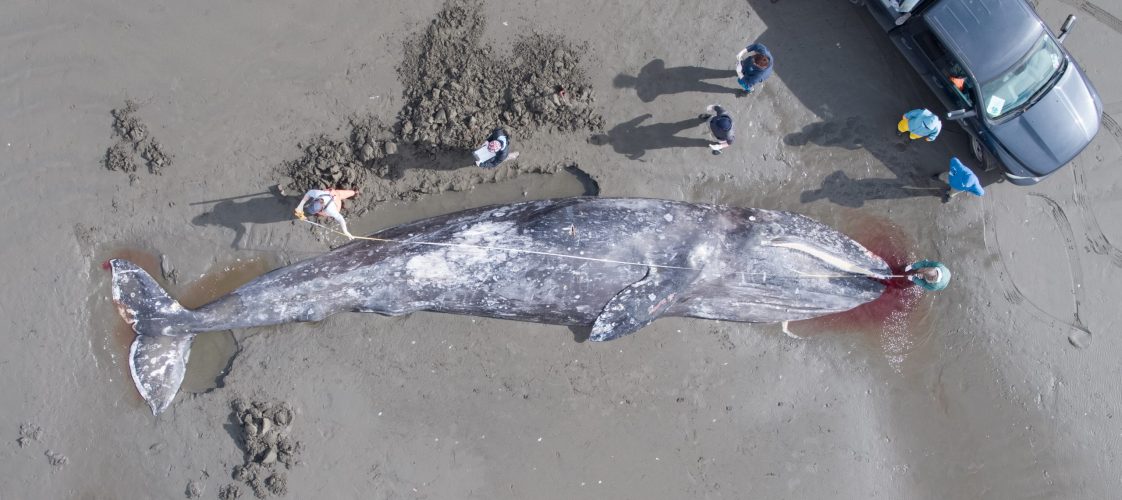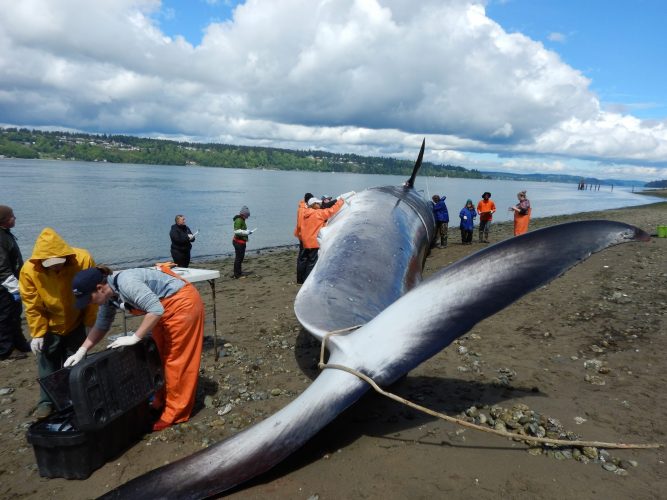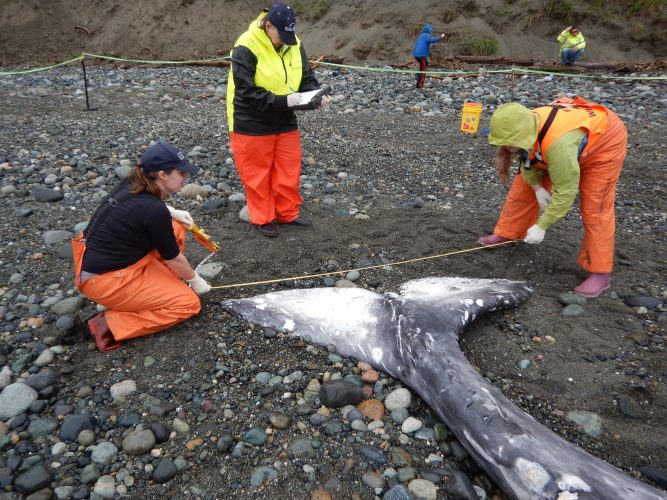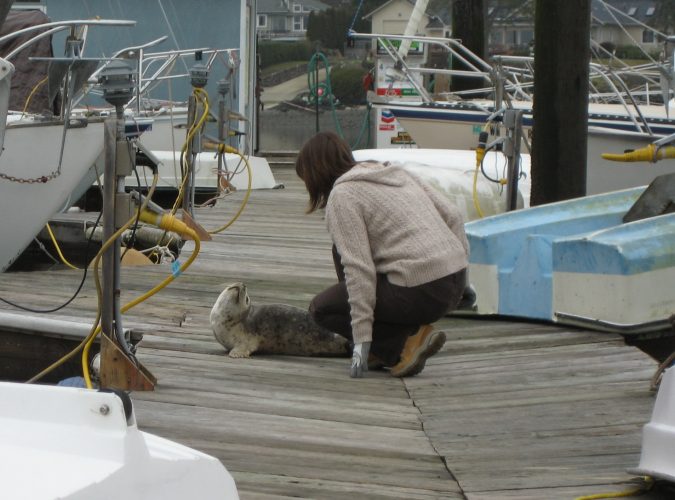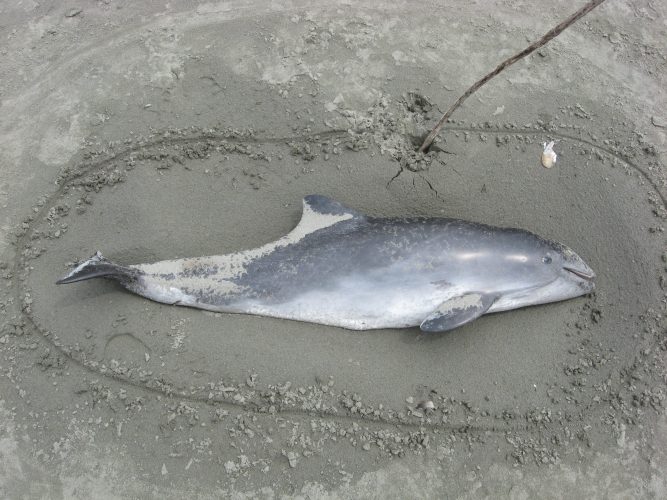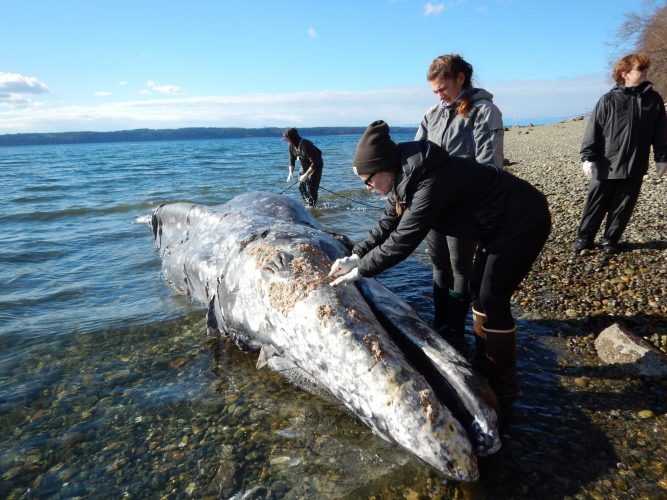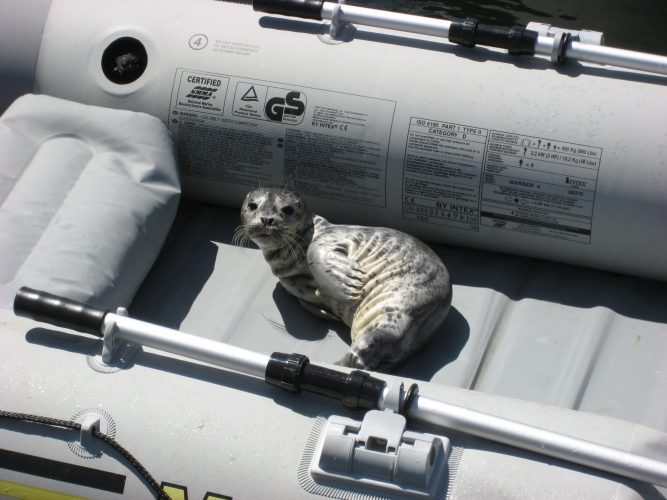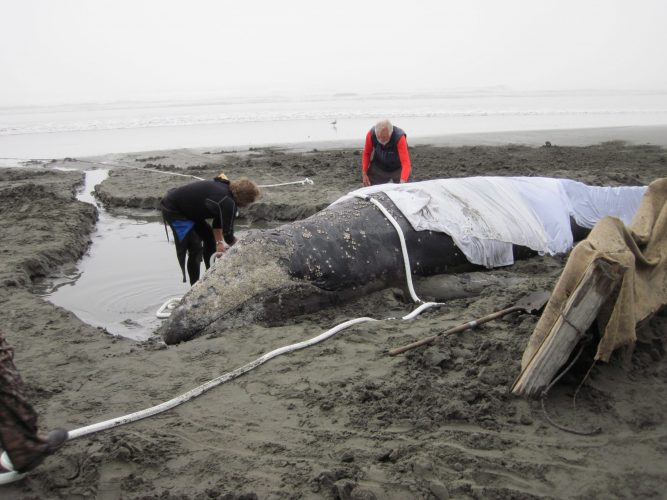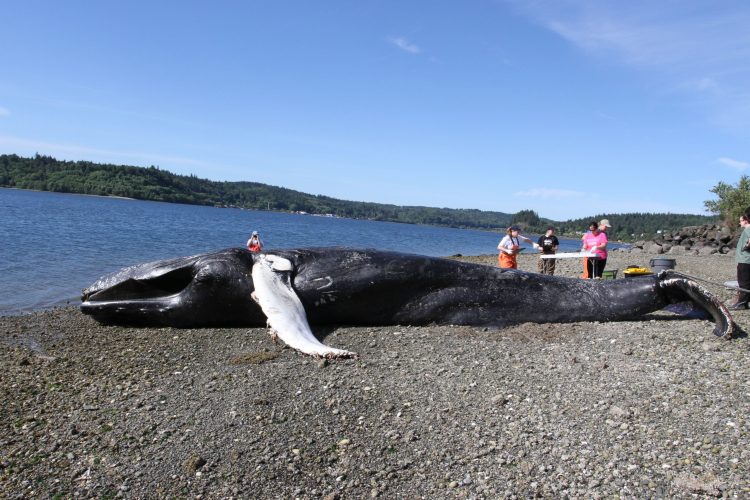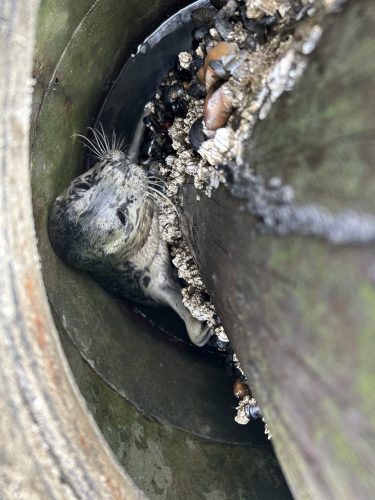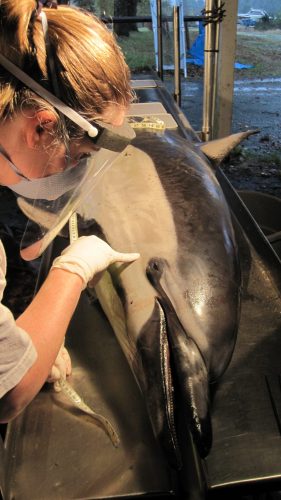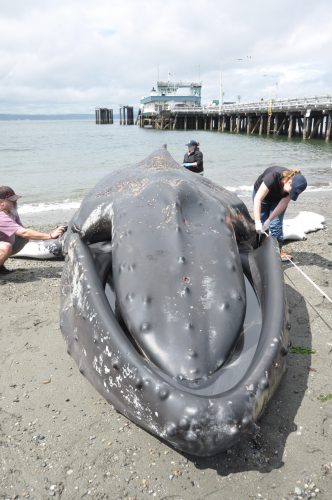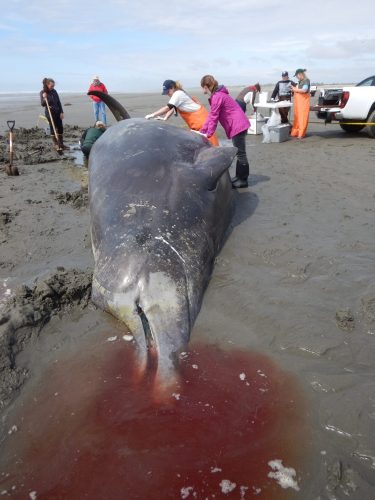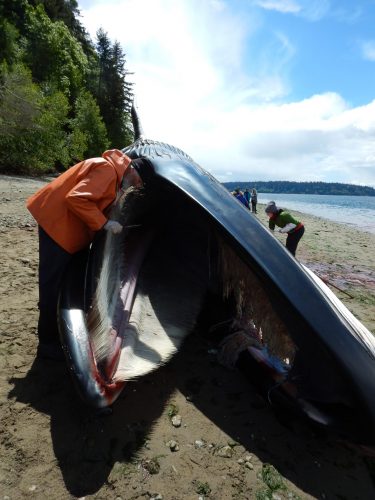Cascadia has been an active part of the West Coast Marine Mammal Stranding Network for many years and first began responding to marine mammal strandings in the late 1970s. We currently respond to an average of 100 stranded marine mammals annually, which includes large whales anywhere in Washington State. We frequently collaborate with other stranding network organizations, federal and state agencies, and tribal governments in response and examination of stranded animals.
Data we collect includes basic information about the stranding event, such as species, age class, sex and location, which are valuable in establishing baselines and detecting deviations from normal stranding trends. When possible, Cascadia biologists conduct a detailed external and internal examination to look for evidence of human interaction (vessel strike, entanglement, gunshot, etc), identify the potential cause(s) of death, and collect samples for ongoing studies related to overall marine mammal health.
Cascadia’s long-term stranding interests:
- Large whale stranding trends in Washington State, including two gray whale unusual mortality events (UMEs) and recent increases in human-caused mortalities of humpback and fin whales
- Evaluation of human impacts on marine mammals: ship strikes, entanglements, contaminants, disturbance, habitat loss
- Disease surveillance in marine mammals; trends and detection of emerging disease
- Harbor seal abundance, pup mortality, impacts of disturbance (human and natural) at local haul out sites
- Status and population structure of harbor porpoise, including use of contaminants as an indicator of different populations along the US West Coast
Results from our stranding program activities have contributed to numerous publications and scientific conference presentations related to marine mammal stranding trends, life history, human impacts, disease, and other sources of mortality (see publications). This work has also enabled us to provide hands-on experience to the more than 225 interns, volunteers, and grad students have spent over 13,000 hours assisting with responses and examinations (since 2004). Support for stranding response and research has come through the Prescott Marine Mammal Rescue and Assistance Grants Program.
To report a dead, injured, or stranded marine mammal anywhere in Washington State, please call the West Coast Marine Mammal Stranding Hotline at 1-866-767-6114. For strandings of large whales in Washington State or strandings of any marine mammal in Thurston or Mason counties you can call or text our stranding hotline at 360-791-9555 or email strandings@cascadiaresearch.org. We will want to know the date, time, location, description of the animal, and your name and contact information.
